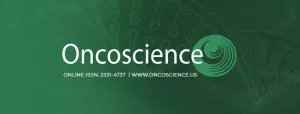(Press-News.org) Amsterdam, Netherlands – 25 Aug 2023: The European Society of Cardiology (ESC) Guidelines on acute coronary syndromes are published online today in European Heart Journal.1 The document covers the management of unstable angina and all types of acute myocardial infarction.
“Time is critical in acute coronary syndromes. When an artery supplying the heart with blood becomes blocked, the quicker we open the artery and restore flow, the less damage occurs to the heart muscle,” said Guidelines task force chairperson Professor Robert Byrne of the Mater Private Network and RCSI University of Medicine and Health Sciences, Dublin, Ireland. “Chest pain that lasts for more than 15 minutes and/or recurs within one hour should alert the public to contact the emergency medical services immediately, day or night. Other symptoms include sweating, pain in the shoulder or arm and indigestion.”
“Heart disease is the number one cause of death in women and men. A common misconception is that acute coronary syndromes primarily affect men, but women are also at risk and should seek immediate medical help if they have symptoms. Concerningly, several studies have suggested that acute coronary syndromes are underrecognised and undertreated in women but in general, women and men should receive the same treatments. Healthcare providers must make a concerted effort to ensure that women receive evidence-based care,” said Guidelines task force chairperson Professor Borja Ibanez of the National Centre for Cardiovascular Research (CNIC) and Fundación Jiménez Díaz University Hospital-CIBERCV, Madrid, Spain.
The heart requires a constant supply of blood to function normally. Blood flow can suddenly reduce or stop when a clot forms in an artery supplying the cardiac muscle, and this is known as acute coronary syndrome. The subtypes of acute coronary syndromes are defined according to the severity of blood flow reduction and its consequences: unstable angina (when no irreversible cardiac muscle damage occurs) and myocardial infarction, also called heart attack (when there is irreversible loss of muscle). Myocardial infarction can be further divided into complete and partial blockages. Dr. Ibanez said: “One of the key aims of these Guidelines is to highlight that acute coronary syndromes encompass a spectrum of conditions. Some patients have mild symptoms while others become critically ill very quickly. Despite this, much of the management follows the same principles, and this document provides a comprehensive overview.”
The Guidelines provide detailed advice on treatment, which includes medications such as blood thinners (anticoagulant and antiplatelet therapy). Most patients have a coronary angiogram, which uses X-ray images to see the heart’s arteries. When an artery supplying the heart is completely blocked, emergency insertion of a stent via a catheter in the wrist should be performed in a specialist centre. Patients in geographically remote areas without a specialist centre may instead receive an intravenous clot dissolving drug. When there is no complete blockage, the treatment options are stent insertion, open chest bypass surgery or medical therapy alone.
Long-term management is crucial after an acute coronary syndrome, as patients are at increased risk of a repeat event. Management includes medications such as antiplatelets and aggressive control of cholesterol levels. Patients should attend a supervised cardiac rehabilitation programme where they will be encouraged to adopt healthy lifestyle changes, including increasing activity levels, eating a balanced diet, quitting smoking, and taking steps to address psychosocial stress if relevant. “This will reduce the chances of recurrent events and improve quality of life,” said Professor Byrne. “Some patients who experience heart attacks are at risk of developing heart failure because of large damage to the heart muscle and additional medications may be given to reduce this risk.”
The Guidelines include a new section on the management of acute coronary syndromes in patients with cancer. Those with cancer have an elevated risk of acute coronary syndromes due to shared risk factors such as smoking, type of cancer, and treatment with chemotherapy and radiotherapy. Rates of cancer continue to increase and better treatments mean that more patients with cancer survive, and cardiovascular disease is the leading cause of death. Those with active cancer are at high risk of bleeding and the Guidelines state that this should be taken into account in decisions about management. The Guidelines recommend an invasive strategy (e.g. angiography and insertion of stent if needed) in patients with active cancer and an expected survival of at least six months. A temporary interruption of cancer therapy is recommended when it is suspected to be a contributing cause of acute coronary syndrome.
Also new is a section on patient perspectives. The Guidelines recommend assessing and adhering to individual patient preferences, needs and beliefs, and ensuring that patient values are used to inform all clinical decisions. The Guidelines also advise including patients in decision-making as much as their condition allows and informing them about the risk of adverse events, radiation exposure and alternative options.
ENDS
Notes to editors
Authors: ESC Press Office
Tel: +33 (0)661401884
Email: press@escardio.org
The hashtag for ESC Congress 2023 is #ESCCongress.
Follow us on Twitter @ESCardioNews
Funding: None.
Disclosures: The disclosure forms of all experts involved in the development of these guidelines are available on the ESC website www.escardio.org/guidelines.
References and notes
12023 ESC Guidelines for the management of acute coronary syndromes. European Heart Journal. 2023. https://doi/10.1093/eurheartj/ehad191
About ESC Congress 2023
It is the world’s largest gathering of cardiovascular professionals, disseminating ground-breaking science both onsite in Amsterdam and online – from 25 to 28 August. Explore the scientific programme. More information is available from the ESC Press Office at press@escardio.org.
About the European Society of Cardiology
The European Society of Cardiology brings together health care professionals from more than 150 countries, working to advance cardiovascular medicine and help people lead longer, healthier lives.
END
First ESC Guidelines covering all acute coronary syndromes published today
2023-08-25
ELSE PRESS RELEASES FROM THIS DATE:
First international guidelines on heart muscle diseases published today
2023-08-25
Amsterdam, Netherlands – 25 Aug 2023: The European Society of Cardiology (ESC) Guidelines on cardiomyopathies are published online today in European Heart Journal.1 This is the first international guideline document to include all cardiomyopathy subtypes, and the first time that specific recommendations are made for cardiomyopathies other than hypertrophic cardiomyopathy.
“This pioneering document reflects the advances in genetics and cardiac imaging and the advent of new treatments that target specific causes of disease,” said Guidelines task force chairperson Dr. Elena Arbelo of the Hospital Clinic, University of Barcelona, Spain.
“At the ...
Recommendations to reduce cardiovascular risk in patients with diabetes published today
2023-08-25
Amsterdam, Netherlands – 25 Aug 2023: Patients with type 2 diabetes are more than twice as likely to develop cardiovascular disease (CVD) than their healthy peers. Advice to lower that risk is launched today in the 2023 European Society of Cardiology (ESC) Guidelines for the management of cardiovascular disease in patients with diabetes, published in European Heart Journal.1
“Patients with type 2 diabetes have a two- to four-fold higher risk of coronary artery disease, stroke, heart failure, atrial fibrillation and peripheral artery disease compared to those without type 2 diabetes and when CVD occurs, the prognosis ...
Patients urged to be vigilant about cardiac infections
2023-08-25
Amsterdam, Netherlands – 25 Aug 2023: Patients with specific cardiac conditions such as valvular heart disease and congenital abnormalities, or those requiring a pacemaker, should practice good dental and skin hygiene to help prevent rare but potentially deadly infections of the heart’s inner lining and valves, according to European Society of Cardiology (ESC) Guidelines on infective endocarditis, published online today in European Heart Journal.1
“Infective endocarditis is an uncommon but very serious disease that can present with ...
Focused update of ESC Heart Failure Guidelines published today
2023-08-25
Amsterdam, Netherlands – 25 Aug 2023: A focused update of the European Society of Cardiology (ESC) Heart Failure Guidelines is published online today in European Heart Journal following the results of major new trials that should change the management of patients with heart failure.1
“Heart failure is a fast-moving area of research and exciting new trials are expanding the treatment options for patients,” said Guidelines task force chairperson Professor Theresa McDonagh of King’s College Hospital, London, UK. “This focused update incorporates the latest evidence-based treatments ...
Cancer drug development yesterday, today and tomorrow
2023-08-25
“One can expect that artificial intelligence (AI) will play some role in the future drug development.”
BUFFALO, NY- August 25, 2023 – A new editorial paper was published in Oncoscience (Volume 10) on August 17, 2023, entitled, “Cancer drug development yesterday, today and tomorrow.” In this new editorial, researchers Elzbieta Izbicka and Robert T. Streeper from New Frontier Labs discuss the history of cancer drug development and how it has evolved over time. The editorial also highlights the current state of cancer drug development and ...
How fast does the charge migrate in molecules?
2023-08-25
To discover how light interacts with molecules, the first step is to follow electron dynamics, which evolve at the attosecond timescale. The dynamics of this first step have been called charge migration (CM). CM plays a fundamental role in chemical reactions and biological functions associated with light–matter interaction. For years, visualizing CM at the natural timescale of electrons has been a formidable challenge in ultrafast science due to the ultrafine spatial (angstrom) and ultrafast temporal ...
AI analysis finds younger AFib patients benefit from MRI-guided ablation treatments
2023-08-25
Younger atrial fibrillation (AFib) patients are most likely to benefit from more personalized, MRI-guided ablation treatments to correct irregular heart rhythms, according to a new artificial intelligence-guided analysis of results from the DECAAF II trial, one of the largest global studies of treatments for heart arrhythmias.
Tulane University researchers presented the findings at the European Society of Cardiology (ESC) Congress 2023 in Amsterdam this week.
There’s been debate among physicians on whether going beyond traditional ablation treatments provides a benefit to patients. In 2021, the ...
European Society of Cardiology calls for competency-based cardiac imaging
2023-08-25
Sophia Antipolis, 25 August 2023: Competency-based cardiac imaging delivery is needed for effective and efficient patient care, according to a European Society of Cardiology (ESC) statement published today in European Heart Journal, a journal of the ESC.1
All seven ESC subspeciality associations have endorsed the document, namely the European Association of Cardiovascular Imaging (EACVI), Association of Cardiovascular Nursing & Allied Professions (ACNAP), Association for Acute CardioVascular Care (ACVC), European Association of Preventive Cardiology (EAPC), European Association ...
Understanding the surge in cannabis use among pregnant and postpartum women in the US
2023-08-25
Pregnant and recently postpartum women who suffer with mental health disorders may be vulnerable to using cannabis to self-medicate, according to a Rutgers-led study.
In a nationally representative survey, Qiana L. Brown, an assistant professor at the Rutgers School of Social Work, examined the relationship between mental health disorders, cannabis use and cannabis use disorder (CUD) among pregnant and postpartum women in the US. The findings were published online in advance of print in the July 2023 issue of the journal Drug and Alcohol Dependence.
“Before this study, we ...
A study to keep downtown Arlington vibrant
2023-08-25
A study led by two University of Texas at Arlington public affairs professors, in partnership with city leaders, suggests downtown Arlington events would enjoy increased attendance if there were more parking, shaded areas and Instagram-ready photo opportunities.
Respondents to the survey consider downtown Arlington one of the top-three destinations in the city for entertainment.
“Downtown is competing with Texas Live! and The Highlands,” said Emily Nwakpuda, assistant professor in UTA’s College of Architecture, ...


